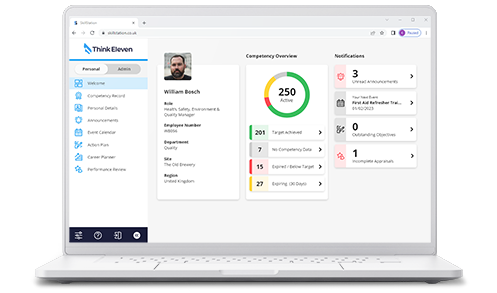Data Protection Impact Assessment eLearning Course
Overview
DPIAs are a legal requirement for processing data that is likely to be high risk, but an effective DPIA can also bring broader compliance, financial and reputational benefits. It can help you demonstrate accountability and build trust and engagement with individuals.
DPIAs are often used on a project basis which may focus on a particular part of a business, or a new process. The basic procedure can be adapted for large or small projects and they should be used as an ongoing method which reviews the risks from data processing.
In this e-learning course, you users will learn the importance of a DPIA and how to apply it from start to finish. This will include; establishing what data is being processed and how, identifying the potential risks, the important questions that should be asked and how to implement measures to reduce these risks.
Outline Learning Objectives:
- Understand a Data Protection Impact Assessment, why it is important and why they are legally required
- Establish where DPIA’s are a legal requirement
- Identify the data that is being processed and how
- Explore the risks associated with the data collection
- Assess risks and what can be done to reduce them
Audience:
This course is for those involved in carrying out data protection impact assessments.
This course has a minimum of 25 learner registrations for us to provide a quotation.
Request a Quotation- Language
- UK
- Date last updated
- 2/2/2024
- Duration
- 50 Minutes
- Suitable Devices
-
- PC
- Phone
- Tablet
- Audio is Required
-
- Yes
- Includes Video
-
- Yes
- Downloadable Resources
-
- Factsheets
- Completion Criteria
-
- Pass final test
- Visit all pages
- Pass Mark
-
- 80% pass mark required
- Course Technology
-
- HTML5
- SCORM 1.2
- Can be customised
-
- Available at an Additional Cost
- Accreditation or Endorsements
-
- CPD
- Languages
-
- English
